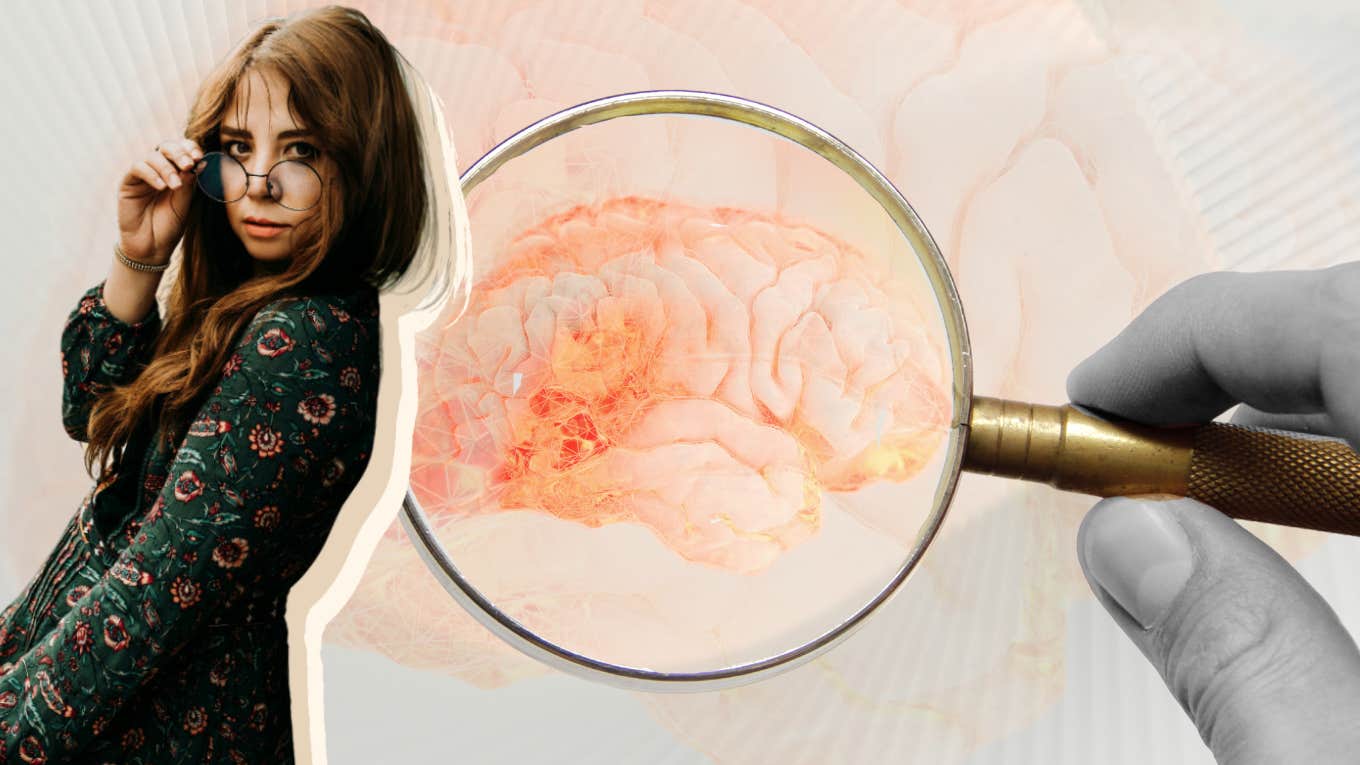4 Tiny Habits That Will Make You More Self-Aware Than 99% Of People
If you want to be more self-aware, build the habits that foster it.
 coyot | Canva, KOMMERS, BRUNO CERVERA | Unsplash
coyot | Canva, KOMMERS, BRUNO CERVERA | Unsplash As a psychologist, I get asked about self-awareness all the time.
Here’s the most important thing most people don’t understand about it:
Self-awareness isn’t something you’re born into. It’s something you build through practice.
And the best way to practice being more self-aware is to build habits that encourage it.
Here are four habits of highly self-aware people that you can use to become more self-aware yourself:
1. They’re curious about their own mind
Self-aware people are curious about their own minds and how they work. They frequently think about their thoughts and thinking patterns.
Technically, this is called meta-cognition. It means you are aware of the fact that you’re thinking things and able to assess the quality and usefulness of that thinking.
For example, people often say things like:
I just got so worried and I couldn’t stop thinking of all the bad things that might happen. And before I knew it, I was in the middle of a panic attack.
In reality, worry is something you do, not something that happens to you. It’s a habitual pattern of thinking that leads to tremendous anxiety and stress. But without the habit of thinking about your thinking, it feels like something that just happens to you.
On the other hand, if you‘re in the habit of thinking about your thinking, you’d notice that worry is actually an activity and something you do. And as a result, it’s something you can, with practice, not do — or at least not do nearly so much of.
“Who looks outside, dreams; who looks inside, awakes.”
― Carl Jung

Photo: Andrea Piacquadio/Pexels
2. They take feedback seriously
Genuinely self-aware people have the humility to understand that they can’t always see themselves objectively. And they know that often the best way to be more objective about yourself is through the lens of other people.
The trick here is that there is no trick:
If you want to see yourself through other people’s eyes you must ask.
It’s that simple.
- Do you frequently get into conflict at work? Identify a co-worker whom you respect and ask for their honest opinion about the situation.
- Does your spouse keep telling you that you don’t listen? Ask someone else in your life you’re close to whether you can come across as not listening well.
- Or maybe the situation is more general: Maybe you just feel a little dissatisfied with your life and suspect that it has something to do with you but you can’t put your finger on it. Look for someone in your life who knows you well and ask them if they see any patterns or tendencies that could be a cause.
What gets in the way of most of us asking for feedback is that we’re afraid of getting bad news.
The most direct way through this fear is to ask yourself:
Would I rather have a small but intense blast of criticism now or years and decades of nagging self-doubt and underhanded criticism that come from avoiding facing my shortcomings?
One of the best ways to improve your self-awareness is to get objective feedback from other people. But in order to do this, you must be willing to tolerate the discomfort of receiving criticism and work to avoid defensiveness at all costs.
“You cannot swim for new horizons until you have courage to lose sight of the shore.”
― William Faulkner
RELATED: Why Emotional Self-Awareness Is So Difficult For Some People To Attain
3. They listen a lot more than they talk.
When it comes to self-awareness, you can’t think your way into it. Of course, there’s nothing wrong with deliberate self-reflection. In fact, it probably will facilitate self-awareness to a degree. But it won’t be sufficient for building self-awareness because we’re social creatures who learn primarily through each other. From babbling out our first words as toddlers to graduating from college, most of our learning happens socially — toddlers imitate their parents just as students imitate their mentors and advisors.
The quest for self-knowledge is a fundamentally social endeavor.
But simply being around other people won’t do the trick. True self-awareness comes from genuine interaction with other people — from conversation. But to get there you need to be able to listen. To really listen.
The key to gaining meaningful self-awareness through listening is to manage your own thoughts during a conversation.
It’s hard to truly listen when you’re formulating your own ideas and only halfway paying attention to theirs. This means building the habit of being a good listener is mostly about learning to undo unhelpful habits. Practice letting go of your own narcissistic impulses and cultivating curiosity instead. Ironically, by bending your attention outward, you’re far more likely to stumble on something useful about yourself.
“There’s a lot of difference between listening and hearing.”
― G. K. Chesterton

Photo: MART PRODUCTION/Pexels
RELATED: 3 Ways To Foster The Self-Awareness It Takes To Make A Relationship Successful
4. They don’t judge themselves for how they feel
It always surprises me how judgmental people are with themselves, especially for something they have no direct control over — their emotions. It doesn’t make any sense to pass moral judgment on something you can’t control. This is why in the legal system no one gets sent to prison for feeling really angry; you only get convicted and punished if you act on that feeling in a way that harms others.
You can’t control your emotions, only your actions.
So we all know intellectually that judging ourselves for how we feel doesn’t make any sense. And yet, we still do it constantly:
- We tell ourselves we’re bad for feeling angry.
- We criticize ourselves for feeling anxious instead of confident.
- We judge ourselves as weak because we feel sad and hopeless instead of optimistic.
You wouldn’t judge other people for having brown hair, green eyes, or an alcoholic father because none of those thing are under their control. So why are you judging yourself for how you feel when it’s not something you can control?!
But being judgmental of your own emotions doesn’t just not make sense, it obscures your self-awareness:
If you’re constantly judging your emotions you won’t have any energy left to understand them.
The solution is to learn to observe your emotions and notice them without passing judgment on them. And the best way to get started with this is to practice labeling your emotions with simple, plain language.
Anytime you feel upset, instead of avoiding the feeling or glossing over it with vague language like “I’m stressed” or “I’m overwhelmed,” try describing how you feel like a child would:
- I’m angry.
- I feel afraid.
- I’m sad.
- I feel guilty.
- I’m lonely.
- I feel proud of myself.
When you get in the habit of describing your emotions in plain, ordinary language — rather than intellectualizing them — you’ll find that you have a clearer insight into those emotions and how to respond to them in a healthy way.
“Words matter. And the words that matter most are the ones you say to yourself.”
― David Taylor-Klaus
RELATED: How Self-Awareness Can Help You Be More Happy & Confident
Nick Wignall is a psychologist and writer sharing practical advice for emotional health and well-being. He is the founder of The Friendly Minds newsletter.

